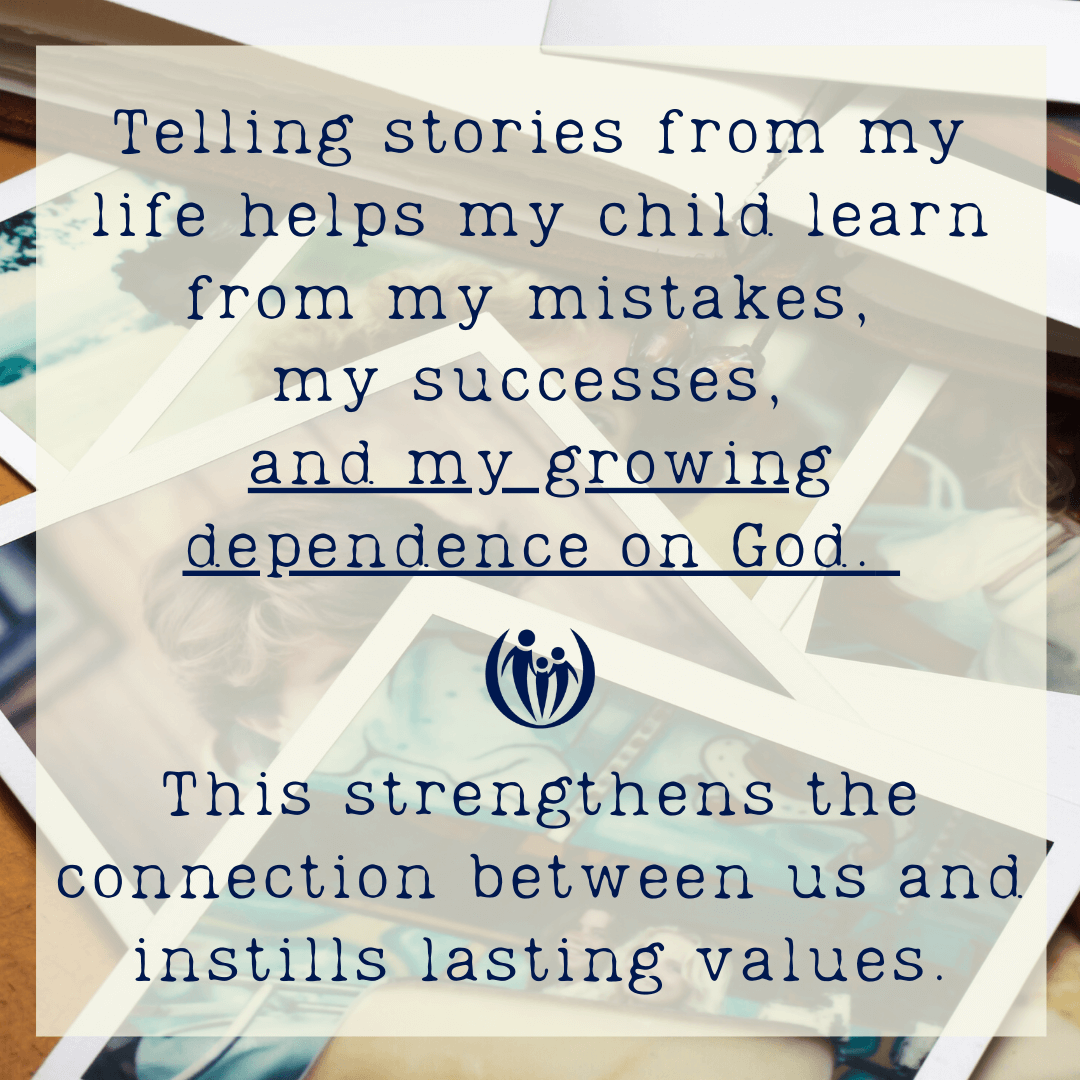
Tell Your Story
 For most of human history, values and faith have been passed along by the spoken word in the context of one’s closest relationships. Telling stories and integrating values into daily conversations was a primary way parents could pass on important lessons to their kids.
For most of human history, values and faith have been passed along by the spoken word in the context of one’s closest relationships. Telling stories and integrating values into daily conversations was a primary way parents could pass on important lessons to their kids.
Research shows significant benefits when parents spend time talking to their children about important issues:
- educational success: Verbal interactions with adults are major predictors of how prepared younger children will be to succeed in school.
- faith development: (pp. 98,99). Fifty-three percent of kids whose church-going parents discuss faith regularly embrace faith for themselves. Twenty-two percent of kids whose church-going parents do NOT discuss their faith openly, embrace faith themselves.
- chemical use: Research shows that kids who learn about the risks of drug abuse from their parents or caregivers are about thirty-six percent less likely to smoke marijuana, fifty percent less likely to use inhalants, fifty-six percent less likely to use cocaine, and sixty-five percent less likely to use LSD than kids who don’t. And two-thirds of youth ages 13-17 say upsetting their parents, or losing the respect of family and friends, is one of the main reasons they don’t smoke marijuana or use other drugs.
Telling stories to pass on faith and values:
The bottom line is this: if I want to pass my faith and values on to my children, talking about deeper issues with them becomes a high priority.
Paul’s philosophy of “parenting” the Thessalonian church is a great picture of passing on core truths through the heartfelt connection of a shared journey:
…we were gentle among you, like a mother caring for her little children. We loved you so much that we were delighted to share with you not only the gospel of God but our lives as well, because you had become so dear to us. (1 Thessalonians 2:7-8)
The bottom line is this: if I want to pass my faith and values on to my children, talking about deeper issues with them becomes a high priority.
We see here that part of the process of growing in Christian community is sharing the stories and experiences that have impacted us most. This builds connection and shared values and can apply to the larger church family as well as our nuclear families.
Telling stories can easily be done in the context of daily life events:
- Talking while doing chores or preparing meals — even just to explain what you are doing and why — can be a great way to communicate the importance of responsibility.
- If your child comes home talking about the fight on the playground, you might tell a story about your experiences with regard to fighting. This could be a springboard for a short conversation about what things are worth fighting for, and what are some strategies for helpful ways to fight for what you believe in.
- For less talkative children, a structured “story time” can provide avenues to either read stories that teach values, or share stories from personal experience.
Either way, from my own life, or from outside examples, I can look for opportunities to weave in discussions of faith and values — and keep telling stories!
Questions to ask yourself to get the conversation started with your child:
- What are two or three significant untold life events that have influenced my values and perspective that I could share with my children?
- How can I make a plan to tell stories to my children more often?
This post is an excerpt from our book How to Grow a Connected Family.
Related Posts
Sign up below to receive a weekly dose of encouragement straight to your inbox:







